Dr. Jayne at HIMSS 2/10/19
I was eagerly awaiting my flight to the Sunshine State this morning, but the travel gods decided to conspire against me with an inch of ice that closed the airport and a good number of Interstate segments. I thought I was getting ahead by traveling in on Sunday instead of Monday, but no such luck. I’m sitting here with my re-ticketed flight, plus three others in hand, so that I can cover my bases and get there one way or another even if I wind up going through Tampa. Thank you, Southwest Airlines, for the beauty that is the fully-refundable ticket.
I’ll start reporting on HIMSS once I actually get there. In the meantime, I received a thought-provoking contribution from an anonymous CEO and I thought it was worth sharing.
Thirteen times in the past 14 years, I have ventured to HIMSS. Each year, at an earlier moment in the week, I regretted the decision to attend. It is mainly because I am missing work that doesn’t go away (because I have), but more and more it is because the show serves no actual purpose. In the following rant, I am going to lay out an argument for how to make the best of HIMSS now that you are on your way, as well as why many that are excited to be in sunny, humid, putrid Orlando are doing the fool’s errand in thinking this will be a worthwhile week.
Full disclosure: I have held (too) many jobs in healthcare IT over the past 12 years and have been on all sides of the HIMSS conference. I have worked a booth, represented companies that didn’t have a booth, paid my own way to join in the educational experience, paid for booths, been on stage, been on panels, and have even just gone to spy on competitors under a fake name and fake company. I’ve had all the badges.
For all parties involved, the juice is most definitely not worth the squeeze.
From a participant / attendee standpoint, I can learn the same from the sessions that I can from a simple Google search (Google Scholar, that is) or a dogged follow of specific influencers in healthcare IT. The sessions fall into distinct categories: (a) a health system employee getting that CV bump by reporting some of the details of something they did successfully; or (b) a vendor-driven presentation that solves no need I am aware of, with limited data and an obvious conclusion.
In the end, most people are nursing a hangover, catching up on real work, or looking to network their way through the presentation. Very, very little actual discourse is driving these educational sessions. It is not like novelty is a strong suit here.
Seeing all the vendors under one roof is both staggering and depressing. We’ll spend the same amount of money on “eradicating AIDS in the US” this year than HIMSS collects for booths with VR headsets, cushy lounge chairs, video demonstrations, DeLoreans, Vespa scooters, and random art and marketing collateral. Think about that. Is this conference on par with eradicating a horrible disease (or at least attempting to? I can’t say for certain if the Trump Administration’s promise is actual doable) What does the money actually go toward?
From a vendor perspective, it is highly unlikely you’ll get a return on your investment from HIMSS (and highly unlikely that your company actually provides an ROI to your customers, but that rant is saved for another day, cool?) The booths are mainly visited by the lookie-loos, the spies, the executives who are just getting their steps in before they go drinking, the swag shoppers, and the investors looking to defend their previous capitalization. Very few decisions are made at HIMSS that are business related, and many of the non-business decisions made at HIMSS are not good ones either (no one looks smart and successful at a business event that looks more like a 1990s wedding party, no one).
You’ll end up running out of your good swag and people will mill around just long enough to earn the larger gift you are hiding for the good prospects. The big award you give out — be it an Alexa, Apple Watch, Caribbean cruise, or gift card — will go to the best prospect you met that week, and we all know that. And if you don’t do that, take my advice, you should. If you are giving things out to everyone, splashing cash and gifts on anyone that comes by, we’re thinking of all the reasons you are able to do that … and let’s be honest, there is no good reason in healthcare to be that flush with money. But sending out those enticing emails for $50 to take a demo — are you sure that is the most enticing way to get your solution known? It’s trick-or-treating for professionals. Scan my badge and give me my prize. Boo!
If you are looking for a job, I actually give you a pass. It is an expensive way to get a new job, but I understand that for many in geographically inconvenient locations, this is the hiring fair that you yearn for. I just know that if you are convinced to get that 100 percent online master’s degree from the “Academics” arena, well, you are too easily parting with your hard-earned money. I have yet to encounter someone who went through those programs successfully. And I have been around a long time. I know people have been successful finding a new job at HIMSS, I am personally unsure how best to go about it, and quite certain that the readers of this blog would be incredibly excited to learn your story and tricks. (Tim, can we pay someone $25 for sharing their tale of recruiting at HIMSS?)
So, what is left? Who is really at HIMSS? Well, if you work for a big vendor in a sales role, you are there. If you are looking to invest in healthcare IT, you are probably there, too. If you are actually shopping for a new solution for your hospital, state, government agency, health system, or clinic, you are fooling yourself into thinking that you are buying what you are seeing — as vaporware is really the only commodity on the HIMSS market — but most likely your institution had a HIMSS budget and you won the lottery this year (and that was me one year and it was cool, except when it wasn’t). Beyond that, there are some media folks, some freelance marketers, consultants, and 14 licensed care providers. Even though you are at the largest healthcare IT conference in the country, if you fall ill or hurt, there will most likely not be a doctor available to help (excusing the ones that have the license but don’t practice because they are too busy “disrupting.”)
If you are presenting on a side stage, you have been conned. You’ve been convinced that being a vaudevillian sideshow act on the floor amidst 40,000 wanderers is somehow going to attract interest in your small company or solution. You are just noise. If you are in the hall where booths turn into small lockers with a monitor, you are lost beyond help and your best chance is to meet your neighbors and see if you can partner together. People floating into those dead-end sections are mainly there to steal a good idea for their idea-bereft big company. And you’re lucky if you get a chance to partner with them, otherwise consider your “innovative, breakthrough disruption and killer app” officially stolen. The deepest depths of the floor are always very interesting, but also reek of desperation and fear. If this doesn’t go well for so many of them, the prospects for their continued operation through next year is staggeringly limited.
For those that go to meet up with friends and old colleagues, I am sure your employer would wish you’d find a less expensive reunion in the future. But I get it, I have many HIMSS-friends from over the years that I only see there, and it is nice to bump into them and quickly swap stories and hugs before sauntering off.
Quick help on your attire: suits=rank-and-file employees; jeans=investors; ties=people who have been doing this longer than you want to know; cool shoes=posturing innovators and lemmings. Socks are clearly the new tattoo, so if you aren’t in a hip color, you may not be invited to the meet-up, party, or club, so choose appropriately. If you get blisters and complain about it, you should be banished. It is a big show, big floor, lots of standing. No one will besmirch the genius who desires to wear a comfortable, but unfashionable shoe. Medical personnel have been wearing Dansko clogs for millennia without any concern. (They are damned comfortable if you are ever in the market. It makes sense to me if you are on your feet for 18 hours to wear them, regardless of price).
I hate to rain on your parade down to Orlando (I actually don’t, but I know I should care about it), but the sideshow act that HIMSS has become is worth pointing out. They are in it for their own gain, not yours. HIMSS is not there to cultivate a better healthcare system for the world, it is there to separate you (and/or your employer) from money. They’ll put you on their television show, let you be retweeted or favorited on their social media, they’ll incent you to buy a bigger thing next year, all so long as you keep sending them money. They will bend over backwards to sell you whatever they think you will buy. They have become shameless.
We’ve oft joked that Vegas is best for getting people to part with their money. Paying unnecessarily for food, drink, events, and hotels. But Orlando has mastered this art. They do it for the entire family, the grift of the entire community is astounding, and they don’t even take a gamble on losing. Even for the most seasoned, there is always a regretful purchase or expense that is only possible when you are stuck in Mouseville with a million tourists. International Drive does not do discounts, sales, or market-based pricing.
So, given this, what should one do with HIMSS? My simple answer is to profit from it. And I mean that in the dirtiest way possible. “If it is free, it is for me.” If there is a contest, enter it. If there is a meeting that comes with a gift card, schedule it. If there is a party with an open bar and dinner, feed and imbibe to your heart’s content. If there is someone in an elevator, say hello. If there is a group of people that look interesting, introduce yourself. If you see someone in military regalia, thank them, offer to buy them a snack, and ask them questions since they are usually the most interesting people there.
If you are stuck behind a booth in a job you’d rather not have, walk a row over and chat up your contemporaries. They know the drill, they know where the snacks are, the free beer and wine at 3:30, and the evening parties that are so big a formal invite isn’t necessary. They’ll get you through, show you the ropes, and maybe even become a friend. But eliminate the notion that you are going to learn about the future, become a better version of yourself, or grow your business, because that’s not what HIMSS is there for (unless they can profit from it).
Have fun, be safe, enjoy the show, and avoid the biggest mistakes you can. I’ve decided to cancel my reservations this year, as it appears I have finally graduated to recognizing my folly before I even leave for the show.





































































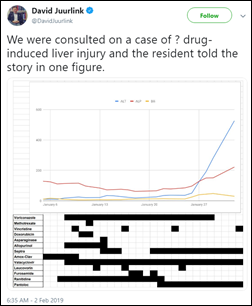










































































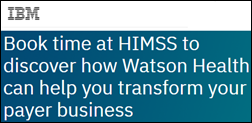







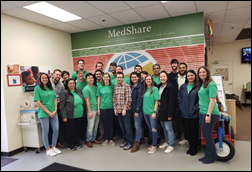

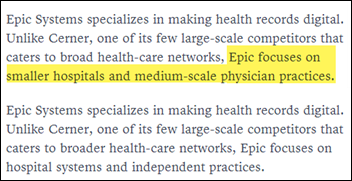




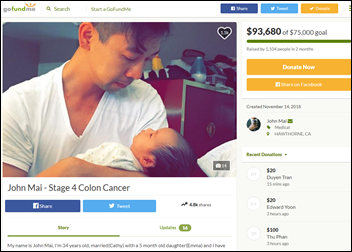





















![image[20] image[20]](https://histalk2.com/wp-content/uploads/2019/01/image20.png)










The New Yorker cartoon of Readers Write articles.